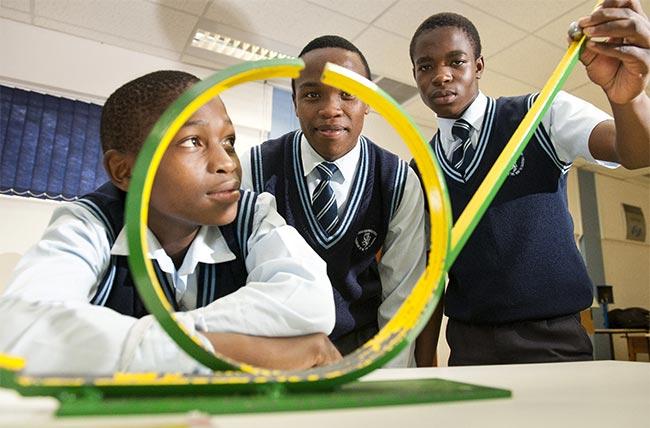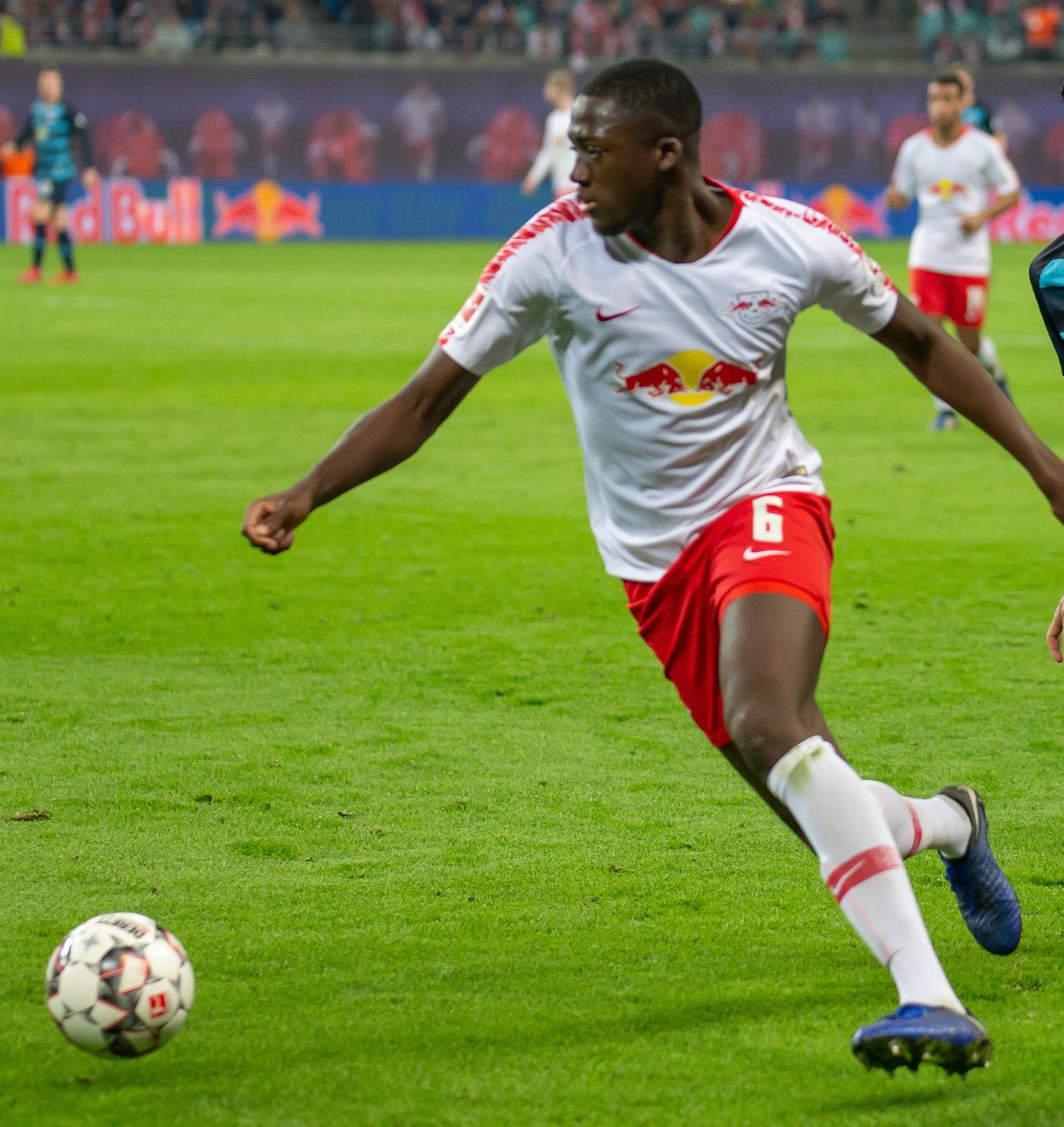
6 minute read
The Anglo-American South Africa Education Programme Is Investing In Ict To Upskill The Youth In Host Communities
THEANGLO -AMER ICANSOUTHAFR ICAEDUCAT IONPROGRAMMEISINVEST ING INICTTOUPSK ILLTHEYOUTHINHOSTCOMMUN IT IES
The socio-economic development and prosperity of host communities have been a priority for the Anglo-American South African Programme. This is evident as they invest in ICT to equip the youths in host communities with skills that will help them survive and thrive in the Fourth Industrial Revolution.
According to UNESCO, if all adults completed secondary education, the number of poor people in the world could be
reduced by more than half. In South Africa, education has always been a vital lever in the fight against the country?s triple challenges of poverty, inequality and unemployment. For this reason, Anglo American aims to provide a meaningful future for our youth that goes beyond employability. A significant number of schools in South Africa have limited to no internet connectivity, which is essential for modern education and school administration. There are several reasons for this, including the associated costs and the poor return on investment for internet service providers, but it?s a challenge we must overcome. Anglo American?s Education Programme came to their rescue with their commitment to building thriving communities as part of the ambitions set out in the Sustainable Mining Plan, a holistic approach to education, from early childhood learning through to matric. According to the organizers, the programme is refocusing investments in education towards enhancing the provision of inclusive, quality education to children in local communities. Part of the Programme?s focus has been partnering with teachers to empower them to advance their own technology skills. During 2020, it provided over 600 devices and training to teachers in its host community schools. Earlier this year, the programme launched the ICT Education Project, where it worked with a range of partners ? including infrastructure providers, content creators, device providers, civil society and the Department of Education - to build a model for effective ICTin lower-quintile schools that can
be scaled across the country. This broader approach, where there is both a focus on empowering teachers and students, is deemed to help facilitate an environment where students can both self-learn, and incorporate technology into actual teaching methods and approaches as they progress. This way, there is hope to build a growing cohort of technology-savvy young people who will be able to grab the opportunities that the Digital Age offers them.
The Anglo American Programme is encouraging organizations across South Africa that are interested in achieving the same goals to partner with them and free their country from poverty.
Image from AngloAmerican website
MILLENIUMEXCELLENCEFOUNDATION(MEF) PROMOTINGAFRICA
The African continent has been overshadowed by poor representation for centuries by some organizations using horrific images as nuanced portraits of the continent. Many would agree that such a portrait is obscuring the progress being made in Africa, as the continent continues to strive to compete on the global scale. However, to combat the constant negative outlook and poor governance stories coming out of Africa, Millennium Excellence Foundation aims to tell the success stories of enterprises and individuals who selflessly bring about change in Ghana and Africa at large. MEFis a non-profit organization that recognizes and rewards African businesses. Its award ceremony is held every five years and has honored over 100 individuals and institutions since its maiden ceremony in the year 2000. The award ceremonies were funded by corporations and individuals who believed in the same vision.
The Africa prestigious program was founded by Ashim Morton, an architect, and Entrepreneur who returned to Ghana after several years in the United States, to give his quota to the development of his continent. After a remarkable ten-year run of research and nominations, the founder decided with the Life Patron?s blessing, to expand the vision to the entire continent.
Every two years, the Lifetime Africa Achievement Prize is held in a different African country with the same goal of recognizing excellence in leadership, governance and entrepreneurship. For the award, a research team recommends potential nominees to the Board of Governors, who handle the final nomination process of a prize laureate.

The Millennium Excellence Foundation?s Board of Directors has agreed to focus on three sectors in Ghana and across the African continent going forward. The Executive Team of the Foundations will provide services and implementation of Research and Development, Advisory, Consultancy, Training, Local and Regional Forums, and B2B in the sectors of interest.
The Indefat igable Board of Governors Im age from MEF Facebook Page
EXPORTINGTALENTEDAFRICAN SOCCER PLAYERSTOEUROPEAN LEAGUESAND WESTERN NATIONALTEAMS

The migration of African footballers to Europe in search of better professional opportunities has been a longstanding tradition in European football.
It is clear that African football players have incredible talent. Africa Feeding the European labor market has led some people to label this massive one-way movement of raw talents the ?muscle drain?and ongoing post-colonial exploitation.
A 2018 World Cup analysis in Russia revealed a high presence of African (black and Arabic) players in top European teams. Of the four semi-finalist teams, only Croatia was 100%white, while France (63%white), Belgium (31%white), and England (37% white) had a high number of children of immigrants.
This increasing prominence of African players can pose both positive and negative consequences for Africa.
In the negative perspective for the African players, they feel used and are racially abused when the team performs poorly.
?When thingsweregoingwell ? they werecallingmeRomelu Lukaku, the Belgian striker. When thingsweren? t goingwell, theywerecallingme Romelu Lukaku, the Belgian striker of Congolesedescent?
On the flip side, the issue borders on the state of the economy and that of the local league. Africa is being robbed of its most valuable assets to European countries. But we should be realistic as to the fact that some of these players come out of poverty and are looking at

It is fair to observe that in Africa, popular enthusiasm for football has not been matched by its development. This is attributable to rampant corruption, nepotism, and gross mismanagement of resources which have ensured that many professional football clubs in Africa cannot retain good and talented players who are naturally attracted to Europe, where earnings are significantly high and attractive.
The meager earnings of African footballers based on the continent are strikingly inferior when compared to what their counterparts in Europe earn. In this light, wealthy European clubs offer better economic opportunities to skilled players from Africa. For instance, it has been shown that the average weekly SA footballer in the fourth-tier league in England (League Two) is £747, which is significantly higher than the average weekly salary of £40 paid to footballers in Ghana's best-paying team, Kumasi Asante Kotoko.
Some African football experts believe African Nations should export their talents where they can be most appreciated. This helps the individual player not only to conquer his poverty but also have a chance to repatriate some foreign exchange back to his home country.
Africa generally rates well below the European standards in terms of infrastructure, funding, and management. There is a structural lack of pitches, goalposts, nets, balls, jerseys, and other essentials. Indeed, to any discerning observer, the situation is more critical at the grassroots level as many African football clubs suffer from poor funding, with little or no access to these requisite facilities.
The siphoning of funds by African corrupt officials and administrators translates into a lack of requisite facilities for training and, ultimately, poor remuneration of players. Which, in turn, renders players vulnerable to European offers.
African players can move to Europe to bridge the gap of football standards. Until strong leagues are created in Africa, there might be no way of raising the standard, other than playing abroad. As long as the players report to their duties for their country and clubs release them in time, then there is still hope for Africa.

Coach Franklin Chinedu Iheagwam inspiring the next-generation of talented African soccer super stars at Lagos, Nigeria!
Steffen Prößdorf, CC BY-SA 4.0 <https://creativecommons.org/licenses/by-sa/4.0> , via Wikimedia Commons










